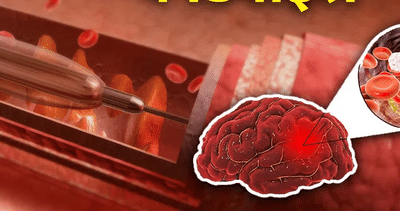In a groundbreaking achievement, Indian scientists have developed an advanced medical device capable of removing blood clots from the brain — a development that could significantly reduce deaths caused by strokes. The innovation, called the Supernova Stent Retriever, has been created by researchers at the Jawaharlal Institute of Postgraduate Medical Education and Research (JIPMER), Puducherry. After successful clinical trials, the device has received approval from the Drug Controller General of India (DCGI), marking a major milestone in Indian medical science.
According to Dr. Sunil Narayan, Professor and Head of the Department of Neurology at JIPMER, the device can be used to remove clots even seven to eight hours after a stroke, a time window that offers hope for many patients who previously had limited treatment options. The device works by being inserted through a catheter into the brain’s veins, where it captures and extracts the clot, helping restore normal blood flow. This innovation could greatly improve recovery rates and reduce stroke-related fatalities.
Another remarkable aspect of the Supernova Stent Retriever is its affordability. Dr. Narayan noted that the device is expected to cost 50–70% less than imported alternatives, making advanced stroke treatment more accessible to patients in India. Currently, hospitals rely heavily on foreign-made devices, which are often prohibitively expensive. Once mass-produced domestically, the Supernova device could help India become self-reliant in stroke treatment while ensuring timely and effective care.
Medical experts highlight that time is critical during a stroke — the sooner a clot is removed, the better the chances of recovery. While clot-dissolving drugs work effectively only within three to four hours of a stroke, this new device extends the treatment window, offering a lifesaving advantage.
The Alarming Stroke Reality in India
-
Every four minutes, one person in India suffers a stroke.
-
Nearly 60% of stroke patients fail to reach the hospital on time.
-
Only 5% receive timely clot-removal treatment.
-
Lack of awareness about stroke symptoms remains a major concern.
You may also like

Ralph Senensky dead: Star Trek and The Twilight Zone star dies as tributes flood in

North Korea's Kim inspects special operations unit's war readiness

Labour warned one key failure could undermine their £48billion new towns plan

Coal India chief calls for biz overhaul to stay relevant amid changing energy landscape

HMRC cuts tax-free Personal Allowance for people with letter K on payslip







